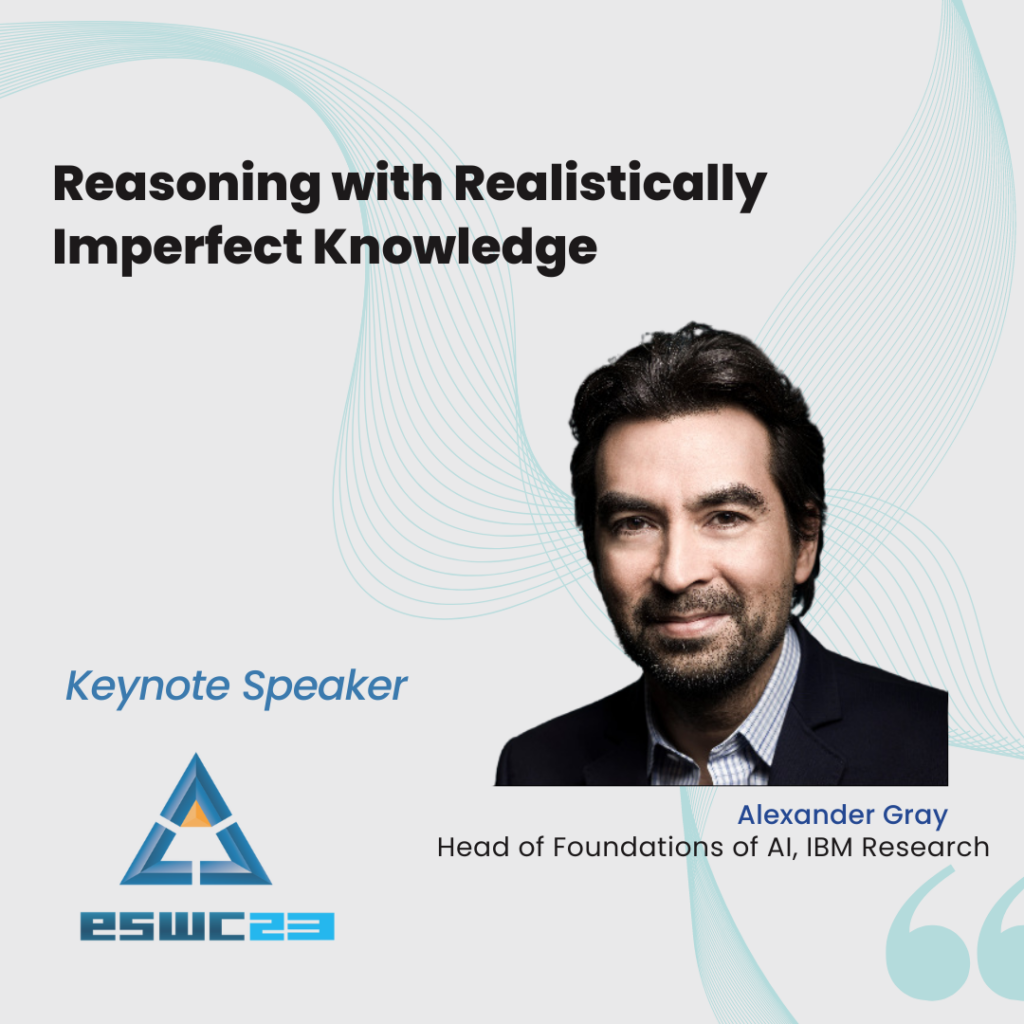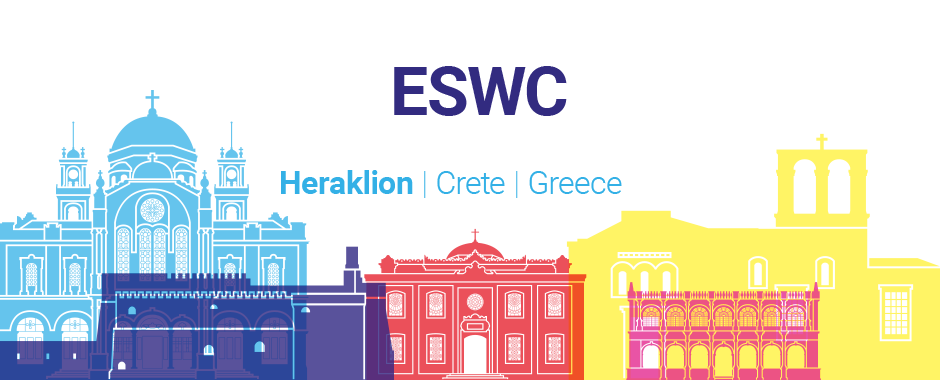Many have already arrived in beautiful Crete, and we are putting their finishing touches on presentations as well as enjoying the day off. Tomorrow we start with the Workshops and Tutorials, and before you know it, the main conference will kick off. We are looking forward to this week with you all!
Best paper nominees
The time has come to announce our best paper nominees.
The papers are presented in the main conference between May 30th and June 1st. You can find each paper’s presentation time slot in our program identified with asterisks (*).
In Research track:
- A Comparative Study of Stream Reasoning Engines * Nathan Gruber and Birte Glimm
- A Framework to Include and Exploit Probabilistic Information in SHACL Validation Reports * Rémi Felin, Catherine Faron and Andrea Tettamanzi
- Classifying sequences by combining context-free grammars and OWL ontologies * Nicolas Lazzari, Andrea Poltronieri and Valentina Presutti
- Explainable Phenotype-Centric Drug Repurposing via Deep Reinforcement Learning * Lise Stork, Ilaria Tiddi, René Spijker and Annette ten Teije
In Resource track:
- A knowledge graph of contentious terminology for inclusive representation of cultural heritage * Andrei Nesterov, Laura Hollink, Marieke van Erp and Jacco van Ossenbruggen
- Describing and Organizing Semantic Web and Machine Learning Systems in the SWeMLS-KG * Fajar J. Ekaputra, Majlinda Llugiqi, Marta Sabou, Andreas Ekelhart, Heiko Paulheim, Anna Breit, Artem Revenko, Laura Waltersdorfer, Kheir Eddine Farfar and Sören Auer
- HHT : an approach for representing temporally-evolving historical territories * William Charles, Nathalie Hernandez and Nathalie Aussenac-Gilles
In In-Use track:
- SemReasoner – A high-performance Knowledge Graph Store and rule-based Reasoner * Kevin Angele, Jürgen Angele, Umutcan Şimşek and Dieter Fensel
- Prototyping an End-User User Interface for the Solid Application Interoperability Specification under GDPR * Hadrien Bailly, Anoop Papanna and Rob Brennan
We want to congratulate all authors for their outstanding work and nomination. The winners will be announced in the closing ceremony. Best of luck!
ESWC 2043 list of papers!
On the second day of the conference, we are expecting a crowd for the session “The Next 20 Years: ESWC 2043” and we have made the list of papers public here. Have a look and get excited!
We are looking forward to the presentation of these (fictitious) papers!
Keynote Speaker: Alexander Gray
We are delighted to announce that Alexander Gray will give a Keynote at the 20th Edition of ESWC titeled

In this talk, Alexander will describe new approaches for reasoning which are motivated by the practical limitations of real-world knowledge graphs, i.e. with multiple aspects of imperfection. These include: uncertainty (both subjective and probabilistic), ignorance (unknown uncertainty), partiality (missing variables altogether), and contradiction (inconsistency between pieces of knowledge and/or raw data). These are difficult to find in a single paradigm simultaneously. He will discuss the efficiency of learning and inference, and correctness properties.
